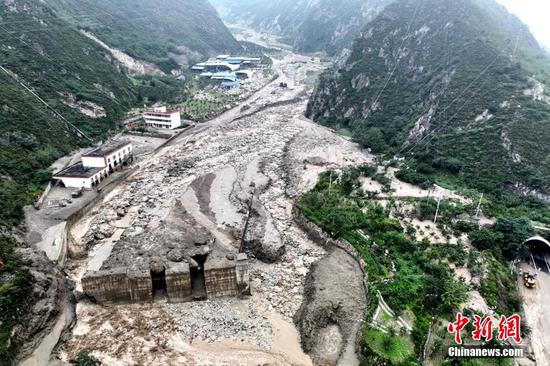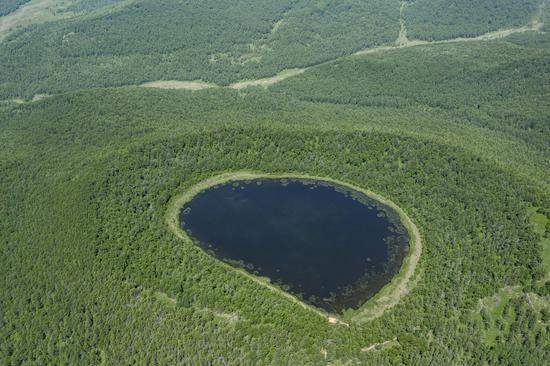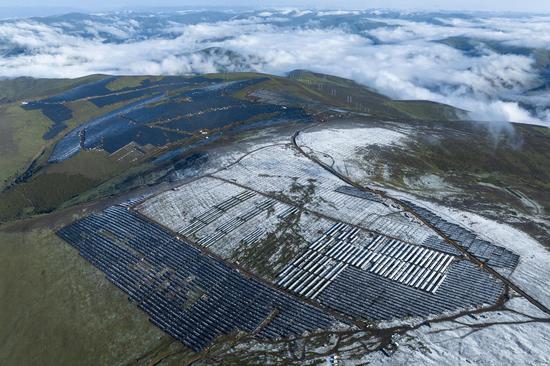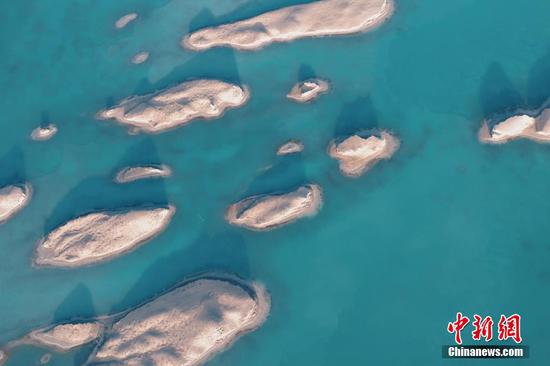Dense smoke and thick haze from Canada's wildfires that blanketed much of the East Coast earlier this month are again covering parts of the U.S., particularly the Midwest, and were moving eastward on Wednesday.
Air quality alerts were issued for parts of 17 states, from Iowa and Minnesota in the west to New York, Maryland, Delaware and North Carolina in the east.
The alerts cover 80 million people, almost a quarter of the U.S. population.
The New York City area joined the list, with an alert going into effect at midnight Wednesday. New York Governor Kathy Hochul warned that air quality is expected to reach unhealthy levels in parts of western and central New York on Wednesday and Thursday.
The National Weather Service said the ongoing wildfires in Canada likely will result in poor air quality affecting parts of the U.S. for a few days. But the smoke isn't forecast to linger or cause issues like the orange skies and worst air quality in history that New York City and the Northeast saw earlier this month.
Forecasters said this round of Canadian wildfire smoke is perhaps a bit less intense than the earlier one. Then, the thick smoke and haze traveled southward along the East Coast, affecting areas from New York City to Washington DC, and even reaching as far west as Minnesota.
By Tuesday, the fires had burned 7.8 million hectares, (19.3 million acres). The fires aren't expected to be extinguished either by firefighters or a major shift in weather conditions until after summer ends.
Smoke was thickest around the lower Great Lakes region and Ohio Valley on Wednesday afternoon, and that patch will continue to drift toward the east and southeast through Thursday, forecasters said.
Chicago, Detroit and Minneapolis had the worst air quality globally on Tuesday and Wednesday, according to IQAir's Air Quality Index.
Cleveland, Pittsburgh, Milwaukee, Indianapolis, and Cedar Rapids, Iowa, saw code purple air quality on Wednesday morning, indicating very unhealthy conditions with an elevated health risk for the general public.
The Canadian wildfires are so intense that NASA said Monday that its satellite imagery revealed the smoke had traveled across the Atlantic Ocean to Europe, drifting over parts of northern Portugal, Spain and France.
Wildfire season typically happens annually from May until October in Canada, home to about 9 percent of the world's forests. But this year's wildfire season has burned more square miles of land than in any other season in the past four decades.
On Wednesday, the Canadian Interagency Forest Fire Centre reported 479 fires burning across the country, down from 485 on Tuesday, of which 237 were out of control. The interagency fire center has recorded 2,981 wildfires since the beginning of 2023.


















































 京公网安备 11010202009201号
京公网安备 11010202009201号